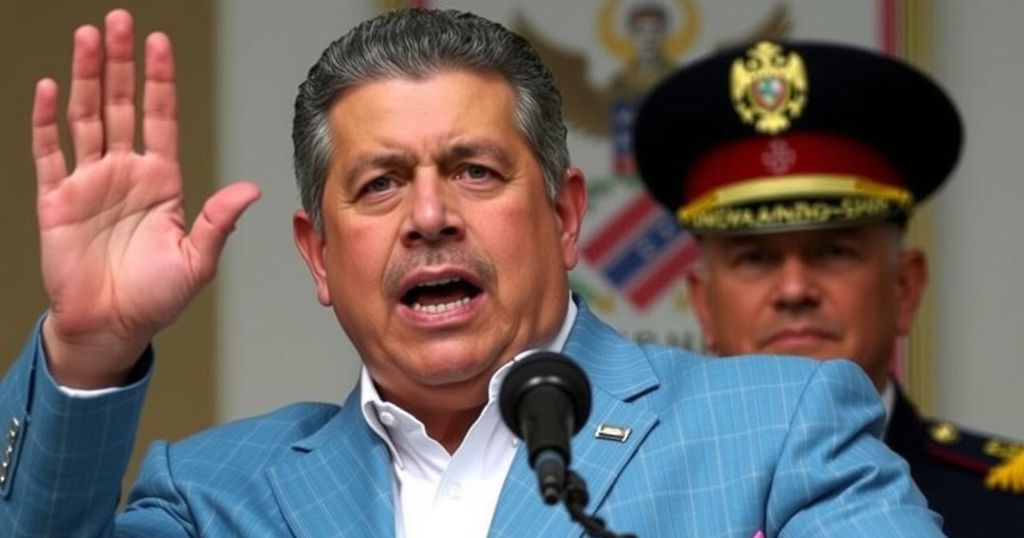Nicolás Maduro has been sworn in for a third term as President of Venezuela despite widespread allegations of election fraud, significant international condemnation, and domestic dissent. His inauguration was boycotted by many democratic leaders, who refuse to recognize his claim to victory, while opposition figures vow to resist his authoritarian regime.
Venezuelan President Nicolás Maduro has been inaugurated for a controversial third term amidst significant domestic protests and widespread international condemnation over allegations of electoral fraud during the July elections. Maduro’s swearing-in ceremony in Caracas lacked attendance from many democratic leaders, as he declared the event a triumph for Venezuelan democracy. However, evidence suggests that his opponent, Edmundo González, was the authentic winner due to public discontent stemming from Venezuela’s dire economic situation.
Maduro’s administration, which has grown increasingly authoritarian since he took office in 2013, has yet to provide credible proof of his election victory. While some regional allies supported him, notable figures like the presidents of Brazil and Colombia opted to boycott the ceremony. Compounding the situation, international figures such as U.S. Secretary of State Antony Blinken and the UK’s Foreign Secretary, David Lammy, directly challenged Maduro’s legitimacy, emphasizing that he does not represent the Venezuelan populace.
In an assertive address, Maduro referred to his government as a fearless protector of democracy, accusing his opponents of being fascists and undermining his authority. Despite dismissive remarks from fellow left-wing leaders who branded his regime a dictatorship, Maduro continues to enjoy backing from military and security chiefs to maintain his hold on power. In response to this ongoing crisis, opposition leaders vow to resist Maduro’s authority through non-violent means, aiming to reclaim democracy in Venezuela.
The political climate in Venezuela has been increasingly tense following Nicolás Maduro’s rise to power in 2013, which began as a democratically-elected presidency but transitioned towards authoritarian rule. This evolution has led to a severe economic crisis, resulting in widespread poverty and discontent among citizens. Allegations of electoral fraud have been rampant following the July elections, which positioned Maduro against challenges from the opposition, particularly Edmundo González. The international community remains divided, with many democratic nations condemning Maduro’s presidency and calling for a restoration of democracy in the region, while authoritarian regimes continue to express support for him.
In summary, Nicolás Maduro’s recent inauguration is marked by significant protests and condemnation from both within Venezuela and from the international community. His alleged electoral fraud, backed by a repressive regime, has elicited strong responses from various global leaders, calling into question his legitimacy. With opposition leaders pledging to fight against his authority through non-violent resistance, the future of Venezuelan democracy hangs in the balance as the nation contends with a socio-economic crisis and political upheaval.
Original Source: www.theguardian.com






